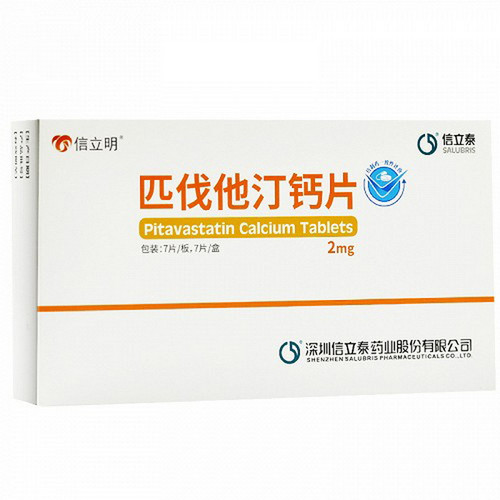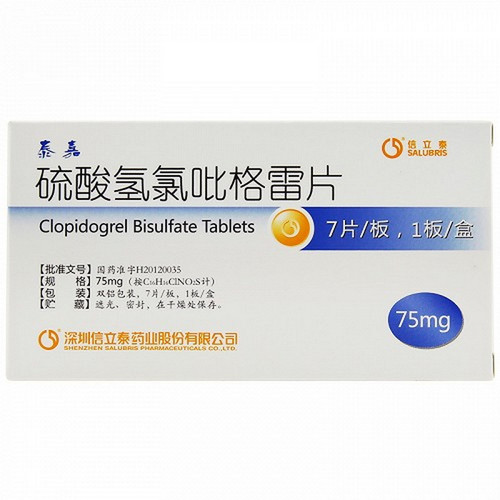Product Overview
[Drug Name]
Generic Name: Allisartan Isoproxil Tablets
Trade Name: XinLiTan
English Name: Allisartan Isoproxil Tablets
Chinese Pinyin: ALiShaTanZhiPian (XinLiTan)
[Ingredients]
The main ingredient of this product is allisartan medoxomil. Chemical Name: 2-Butyl-4-chloro-1-[[2'-(1H-tetrazol-5-yl)[1,1'-biphenyl]-4-yl]methyl]imidazole-5-carboxylic acid [[(isopropyloxy)carbonyl]oxy]methyl ester. Molecular Weight: C27H29ClN6O5
[Properties]
This product is a white film-coated tablet that appears white or off-white after removal of the coating.
[Indications]
For the treatment of mild to moderate essential hypertension.
[Dosage and Administration]
For most patients, the usual starting and maintenance dose is 240 mg once daily. Further dose increases do not further improve efficacy. Maximum blood pressure-lowering effect is achieved after 4 weeks of treatment. Food can reduce the absorption of this product; it is not recommended to take this product with food.
[Adverse Reactions]
Adverse reactions to this product are generally mild and transient, and most resolve spontaneously or with symptomatic treatment. A randomized, double-blind, placebo-controlled clinical trial (137 patients in the levofloxacin group and 138 patients in the placebo group) found that the overall incidence of adverse reactions with this product was similar to that with placebo, at 8.8% and 10.1%, respectively. Adverse reactions with an incidence of 1% or greater, regardless of whether they are definitely related to the drug, include: In addition to the adverse reactions listed above, the following adverse events occurred in 690 patients using this product in three randomized, controlled clinical studies, and a causal relationship with this product cannot be determined: General: fever, fatigue. Cardiovascular: increased heart rate, palpitations. Digestive: nausea, stomach discomfort, stomach pain, abdominal discomfort, diarrhea. Musculoskeletal: left-sided low back pain, bilateral knee pain, and leg pain. Neurological/Psychiatric: dizziness and headache. Respiratory System: Nasal congestion, cough, sneezing, runny nose, upper respiratory tract infection, shortness of breath, chest pain. Skin: Pruritus, herpes labialis. Special Senses: Amaurosis, toothache, eye swelling, tinnitus. Genitourinary System: Dysuria, dysmenorrhea. Laboratory Findings: In randomized controlled clinical trials, patients with mild to moderate essential hypertension rarely experienced significant changes in laboratory test results after taking this drug. Occasionally, elevated liver or renal function parameters were observed. Mild elevations in ALT and AST were observed in 0.87% and 0.58% of patients, respectively, and mild elevations in creatinine were observed in 0.29% of patients. No patient discontinued the drug due to these changes, and the clinical significance is unknown.
[Contraindications]
This product is contraindicated in patients with allergies to any component. It is contraindicated during the second and third trimesters of pregnancy and during lactation.
[Precautions]
Patients with hyponatremia and/or hypovolemia: In rare cases, patients with severe sodium and/or hypovolemia (e.g., those receiving strong diuretics) may experience symptomatic hypotension during the initial treatment of this product. Therefore, hyponatremia and/or hypovolemia should be corrected before using this drug. Renal Artery Stenosis: In cases of bilateral renal artery stenosis or stenosis of the renal artery of a single functioning kidney (renovascular hypertension), the risk of severe hypotension and renal insufficiency is increased with medications that affect the activity of the renin-angiotensin system. Patients with Renal Insufficiency: Dose adjustments and safety information for this drug in patients with renal insufficiency have not been established. Conditions Related to Stimulation of the Renin-Angiotensin-Aldosterone System: In patients whose renal function is dependent on the activity of the renin-angiotensin-aldosterone system (e.g., patients with severe congestive heart failure), treatment with angiotensin-converting enzyme inhibitors or angiotensin II receptor antagonists can cause oliguria and/or progressive azotemia and (rarely) acute renal failure and/or death. Primary Aldosteronism: Antihypertensive drugs that inhibit the renin-angiotensin-aldosterone system are generally ineffective in patients with primary aldosteronism, and therefore this drug is not recommended for use in these patients. Electrolyte Imbalance: Hyperkalemia: Use of medications that affect the renin-angiotensin-aldosterone system may cause hyperkalemia, particularly in patients with renal impairment and/or heart failure and diabetes. Patients with Hepatic Impairment: Dosage adjustments and safety information for this medication in patients with hepatic impairment have not been established. Other: As with other antihypertensive medications, excessive blood pressure reduction may cause myocardial infarction or stroke in patients with ischemic heart disease or ischemic vascular disease. Effects on Driving and Operating Machinery: As with other antihypertensive medications, patients taking this medication should exercise caution when driving or operating machinery. Please read the package insert carefully and use as directed by your healthcare provider.
[Use in Special Populations]
Precautions for Use in Children:
The efficacy and safety of this medication in children and adolescents (under 18 years of age) have not been studied.
Precautions for Pregnancy and Lactation:
It is not known whether ollisartan medoxomil is excreted in human milk. Many drugs are excreted in human milk and may have adverse effects on nursing infants. Therefore, the decision to discontinue breastfeeding or discontinue this drug should be made based on a comprehensive consideration of the maternal benefit and the necessity of treatment.
Precautions for Elderly Patients:
Clinical studies have not demonstrated that elderly patients respond differently to this drug than younger patients. Therefore, dose adjustment based on age is not necessary for elderly patients. Patients with severe liver, kidney, or heart impairment should be carefully observed during treatment, and the dose may be reduced as appropriate.
[Drug Interactions]
Concomitant use of lithium with angiotensin II receptor antagonists and angiotensin-converting enzyme inhibitors can cause reversible increases in blood lithium levels and toxic reactions. Therefore, caution is advised when using this drug with lithium. If combined use is necessary, blood lithium levels should be monitored during coadministration. As with other drugs that inhibit angiotensin II and its effects, concomitant use of this drug with drugs that increase blood potassium levels (angiotensin-converting enzyme inhibitors, potassium-sparing diuretics, potassium supplements, potassium-containing salt substitutes, cyclosporine A, or other drugs such as heparin sodium) can increase blood potassium levels. Monitoring of blood potassium levels is recommended. Nonsteroidal anti-inflammatory drugs (NSAIDs), including selective cyclooxygenase-2 inhibitors (COX-2 inhibitors), may reduce the effects of diuretics and other antihypertensive drugs; the mechanism is unclear.
[Pharmacological Actions]
Genotoxicity: Allisartan medoxomil was negative in the Ames test, CHL cell chromosome aberration test, and mouse micronucleus test. Reproductive Toxicity: Oral administration of allisartan medoxomil at 30-270 mg/kg to rats did not significantly affect fertility. Oral administration of allisartan medoxomil at 30-270 mg/kg and 15-135 mg/kg to pregnant rats and rabbits, respectively, resulted in embryofetal growth and developmental toxicity at high doses, with safe doses of 90 mg/kg and 45 mg/kg, respectively. Oral administration of 270 mg/kg of allisartan medoxomil to rats during the perinatal period resulted in increased offspring mortality and developmental delay. Carcinogenicity: Carcinogenicity studies have not been conducted for allisartan medoxomil. Oral administration of losartan potassium to the maximum tolerated dose (MTD) in rats and mice for 105 and 92 weeks, respectively, did not result in an increase in tumor incidence.
Storage: Store tightly closed in a dry place.
Specifications: 7 tablets (240 mg)
Packaging: Box
Expiration Date: 24 months
Approval Number: National Medicine Standard H20138002
Manufacturer: Shenzhen Xinlitai Pharmaceutical Co., Ltd.






